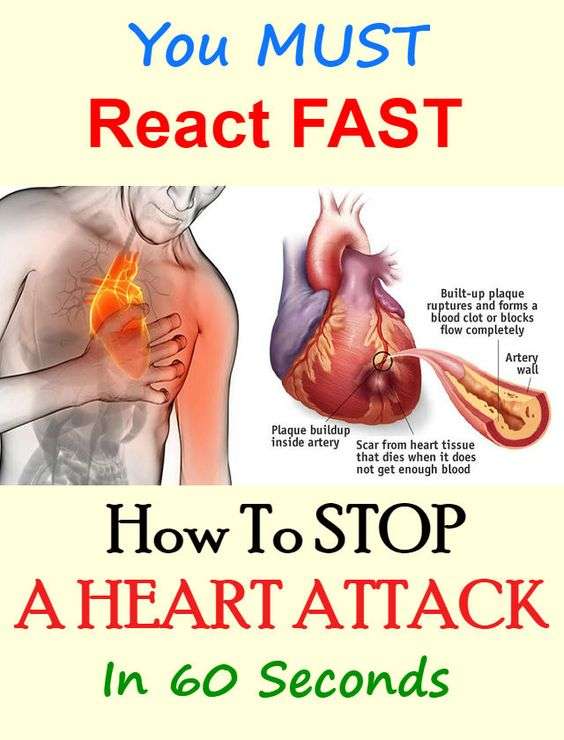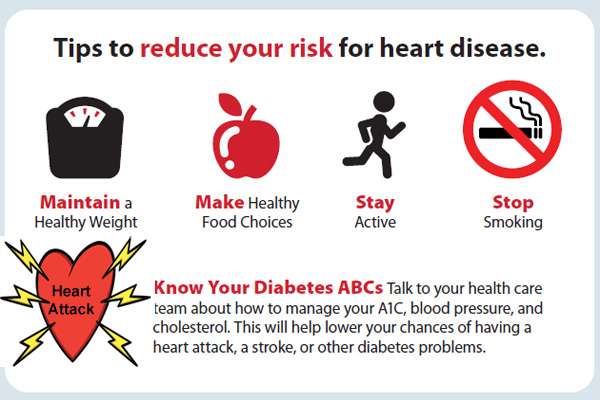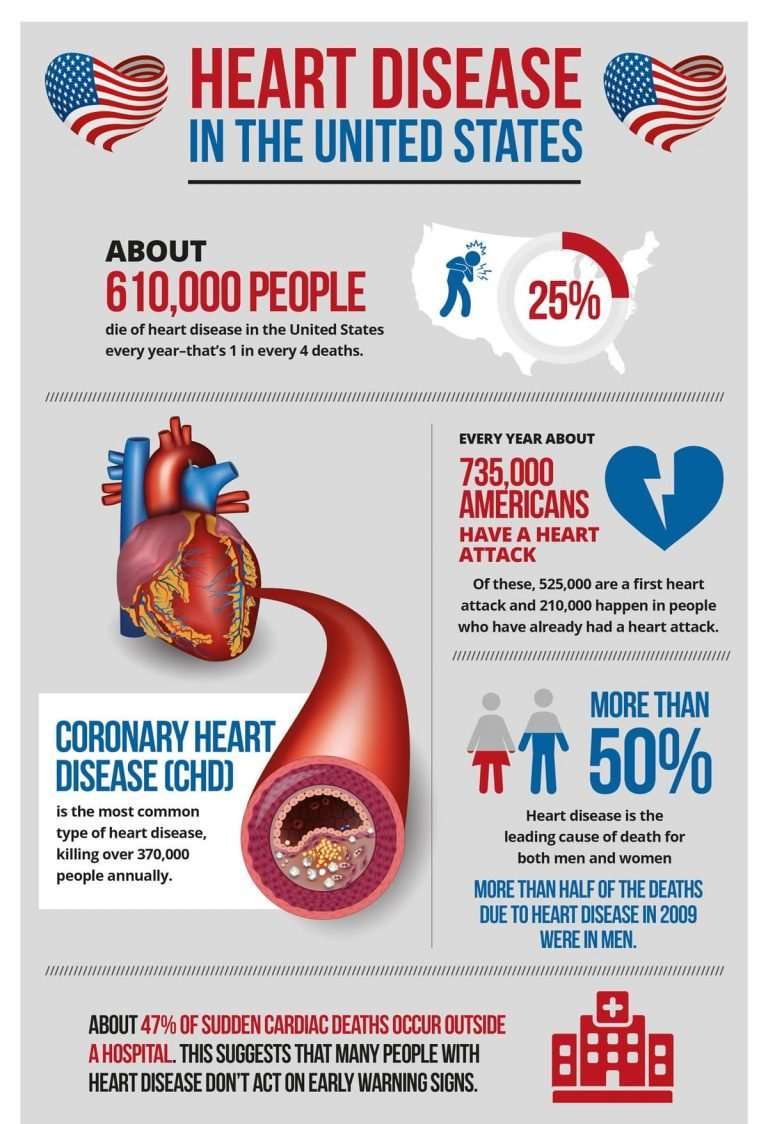Other Factors That Contribute To Heart Disease Risk
Stress
Individual response to stress may be a contributing factor for heart attacks.
Some scientists have noted a relationship between coronary heart disease risk and stress in a persons life, along with their health behaviors and socioeconomic status. These factors may affect established risk factors.
For example, people under stress may overeat, start smoking or smoke more than they otherwise would.
Get stress management tips and tools.
Alcohol
Drinking too much alcohol can raise blood pressure, and increase your risk for cardiomyopathy, stroke, cancer and other diseases. It can also contribute to high triglycerides, and produce irregular heartbeats. Additionally, excessive alcohol consumption contributes to obesity, alcoholism, suicide and accidents.
All that said, there is a protective benefit to moderate alcohol consumption.
If you drink, limit your alcohol consumption to no more than two drinks per day for men and no more than one drink per day for women. The National Institute on Alcohol Abuse and Alcoholism defines one drink as 1 1/2 fluid ounces of 80-proof spirits , 5 fl. oz. of wine or 12 fl. oz. of regular beer.
It is not recommended that nondrinkers start using alcohol or that drinkers increase the amount they drink.
Read our recommendation on alcohol and cardiovascular disease.
Diet and nutrition
To maintain a healthy weight, coordinate your diet with your physical activity level so youre using up as many calories as you take in.
Be Physically Active Every Day
Be physically active every day. Research has shown that at least 150 minutes per week of moderate-intensity physical activity can help lower blood pressure, lower cholesterol and keep your weight at a healthy level. And something IS better than nothing. If you’re inactive now, start out slow. Even a few minutes at a time may offer some health benefits. Studies show that people who have achieved even a moderate level of fitness are much less likely to die early than those with a low fitness level.
Visit Physical Activity and Fitness.
Here’s How These Changes Stack Up:
- 36 percent risk reduction attributed to not smoking.
- 18 percent reduction for eating a diet rich in fruits, vegetables, legumes, nuts, reduced-fat dairy products, whole grains and fish.
- 12 percent reduction for maintaining a waistline of 37 inches or less .
- 11 percent reduction for drinking fewer than two alcoholic drinks per day.
- 3 percent reduction for moderate daily and weekly exercise routines.
- 1 percent the percentage of study participants who exhibited all five of the healthy habits.
Why dont more people follow all five of these lifestyle choices? It can be overwhelming if people feel they need to make all of these changes at once, said Dr. Sweitzer. Everyone could look at where they can make the biggest impact on their risk reduction and start with one small change. The biggest potential impact, if you smoke, stop!
Also Check: What Are Symptoms Of Heart Attack
How To Stop Heart Attack
In order to stop heart attack naturally or at home, sit down in any chair, couch, sofa or divan for better relaxation. If there are no objects to sit on, sit on the ground or floor, e.g. on your knees or with criss-crossed legs. Relax all your muscles.
Next, instead of taking your usual huge inhalation, take a slightly smaller inhalation and then immediately relax all muscles, especially upper chest and all other breathing muscles. Take another inhalation and again completely relax.
With each breath, take a small or reduced inhalation and then completely relax. You will soon experience light air hunger. The goal is to preserve this light level of air hunger for 2-3 minutes . See the video or more details related to this breathing exercise How to stop heart attack fast.
The breathing can be frequent during this reduced or shallow breathing but this is OK. If you do the exercise correctly, you will notice that your angina pain due to your heart attack disappears.
How To Prevent A Heart Attack The First Time And From Happening Again

- To reduce the risk of heart attack make sure you’re exercising regularly, eating a heart-healthy diet, and getting enough sleep.
- Your chances of having a heart attack are higher if you’ve already had one.
- To reduce the risk of another heart attack lose excess weight or attend cardiac rehab, which has been shown to reduce the risk of a second heart attack by 47%.
Someone has a heart attack every 40 seconds in the United States. And after you’ve had one heart attack, your risk for experiencing a second one is even higher.
Here’s what experts say are the best ways to reduce the chance of getting a heart attack in the first place, or prevent another one from occurring.
Read Also: What Should Heart Rate Be When Running
Switch To Healthier Oils
Surprisingly, researchers revisited the old assumption that consuming more saturated fats would increase stroke and cardiovascular disease risk. They found that while reducing saturated fat intake alone did not lower risk, replacing the grease with cis-polyunsaturated fats staved off heart trouble.
What are some examples of foods you can eat? In general, you want more of anything high in omega-3 and omega-6 fatty acids, such as seafood. Make like the Catholics and bring back fish Fridays plus, substitute one other red meat-based meal for an ocean-based one weekly to prevent heart attack.
Live Well Today For A Healthier Tomorrow
The bottom line? Healthy living is the best way to delay or avoid many heart and brain diseases. This means being active and fit, eating healthy, avoiding tobacco and managing conditions that can put you at greater risk. Take charge of your health. Join Healthy for Good for tips, tools and inspiration to make changes and create healthy habits you can sustain throughout your life.
Also Check: Does Gerd Cause Heart Palpitations
Actions For This Page
- There is no single thing that causes heart disease and stroke, but there are several risk factors that contribute to it.
- You can reduce your risk of developing cardiovascular disease by choosing healthy foods, quitting smoking, being physically active, managing conditions managing your weight and avoiding social isolation.
- Medicines are often used to help prevent cardiovascular disease , depending on your level of risk and other health conditions.
Manage Other Health Problems
You can help lower your chance of having another heart attack by managing other health problems that you might have. Health problems, such as high blood pressure, high cholesterol, and diabetes, can increase your risk of a heart attack.
If you have any of these health problems, you can manage them by making lifestyle changes, such as quitting smoking, eating better, and being active. If lifestyle changes don’t help enough, you also may need to take medicines to manage these conditions.
Don’t Miss: What Heart Rate Is Too High
S To Help Prevent A Heart Attack
Aspirin is a blood-thinning medication. Thats why its recommended during a heart attack so the blood can easily pass through the blockage. But people are dying to know if a cayenne pepper can help stop a heart attack. For starters, cayenne pepper is widely known to have lots of health benefits because of its active compound called Capsaicin During a womans reproductive life cycle, a naturally occurring hormone called estrogen provides some protection against cardiovascular disease, so womens risk of heart disease is lower compared to men their age. While women just like men can develop heart disease, the risk is greater for women after menopause.This is when the ovaries stop producing estrogen and progesterone.
Dont Miss: What Causes Left Sided Heart Failure
What You Can Do To Prevent A Heart Attack
In this article
You want whats best for your heart. And its simpler than you might think. These lifestyle changes can help prevent a heart attack and heart disease.
Eat to be your best. Add plenty of fruits and veggies, grains, and foods high in omega-3 fatty acids like fresh tuna or herring to your diet. Cut down on salt, saturated fats, sweets, and red meats. Avoid trans fats and food with hydrogenated or partially hydrogenated ingredients. Variety in your diet is a good way to get all the nutrients you need.
Recommended Related to Health A-Z
Take it easy. Find a relaxation method that works for you. Yoga, meditation, dedicated time to unwind after work — these can help keep your stress levels down. Stressful emotions such as anger and hostility may also lead to heart attack risk, so keep calm and be cool.
Ban smoking. If you never started smoking, thats perfect! If you already quit, excellent. If you still smoke, stop. Talk to your doctor to find out what method will work best for you. Even people who smoke fewer than five cigarettes a day can have early signs of heart disease. Start now. In just 1 year you can reduce your risk of a heart attack.
Read Also: How To Prevent Heart Disease Naturally
Cultivate A Positive Social Network
Recent research from the University of North Carolina at Chapel Hill suggests that having a thriving social network is as important as exercise in reducing health risks, including heart attack. While your responsibilities increase with age, dont let family and career happen at the expense of your friendships.
Outside relationships grow more important as you get older. Many adults eventually lose their life partners, and the resulting loneliness increases heart risk. To prevent heart attack, seek connection through volunteering and participating in community activities.
Have Someone Call An Ambulance

If others are around, tell them to stay with you until emergency medical services workers arrive. Calling 911 is usually the fastest way to get emergency care, as opposed to asking someone to drive you to a hospital in their car. EMS workers are trained to revive people experiencing heart attacks and can also transport you to the hospital for rapid care.
If youre in a public space such as a store, school, library, or workplace, theres a good chance theres a defibrillator on hand.
A defibrillator is the kind of device EMS workers use to revive people who are experiencing heart attacks. If youre still conscious at the onset of your heart attack, instruct someone nearby to find the closest defibrillator. Defibrillators come with easy-to-use instructions, so its possible for a non-EMS worker to revive you if the heart attack strikes.
Also Check: How To Avoid Heart Attack
How To Prevent Or Stop Heart Attack
About a decade ago, Japanese medical doctors conducted a study with over 200 heart patients. These patients were asked to hyperventilate. As a result, 100% of them naturally experienced coronary artery spasms . If heavy breathing causes heart attacks, then breathing less could stop a heart attack even at home in as little as 30 seconds .
A leading Soviet physiologist Dr. Konstantin Buteyko, MD, Ph.D. , developed a system for breathing normalization. It is now known as the Buteyko breathing method. Dr. Buteyko and his medical colleagues used this method for many thousands of Soviet and Russian heart patients. One of their breathing exercises helps to stop a heart attack, in most cases, naturally at home without using medication. How?
How To Prevent A Second Heart Attack
That first heart attackthe pain, nausea, shortness of breath, terror. Its an experience you dont want to repeat, ever.
From the Pritikin Longevity Center, learn in this article how to prevent a second heart attack. And start a new life, a better life. For the last four decades, Pritikins renowned experts have helped thousands worldwide. The success of Pritikins heart-healthy lifestyle is proven in 100+ studies.
Don’t Miss: How To Slow Down My Heart Rate
Q Can Stress Cause Heart Attack
Read Also: Ejection Fraction At Rest
Take Control Of Any Medical Conditions
The biggest risk factors for heart attacks are high blood pressure, high blood cholesterol and smoking and about half of Americans have at least one of these risk factors, according to a report from the American Heart Association. Other health conditions that increase the chances of heart disease are diabetes and obesity.
If you have risk factors for heart attacks, work with your doctor to improve your heath and lower your risks. And if youre prescribed medications, make sure you take them.
Do statins prevent heart attacks?
Studies show that statins, medications used to lower cholesterol, can lower your risk of heart disease and heart attacks. The U.S. Preventive Services Task Force recommends statins for adults between the ages of 40 and 75 who have an increased risk of heart disease.
Should you take aspirin to prevent a heart attack?
You may have heard that its a good idea to take a low-dose aspirin to prevent heart attacks. But depending on your age and health, this may or may not be recommended for you.
If you have heart disease or already had a heart attack or stroke, daily low-dose aspirin can help reduce the risk of a second heart-related event. But if youre a healthy adult, the benefits of aspirin are not as clear.
Don’t Miss: What Can Increase Heart Rate
How To Prevent A Second Heart Attack After Youve Had One
According to the American Heart Association, about 20% of people who have their first heart attack will experience a second one within five years. But Alpert says there are ways to reduce that risk.
Along with the recommended lifestyle changes above, youll want to take any medication described by your doctor especially if its to reduce high blood pressure or cholesterol. Getting to a healthy weight is also key losing even 10% of your body weight is important for reducing the risk of a heart attack if youve already had one.
Cardiac rehab is also recommended for those who have had a heart attack. Its a medically supervised program that gets people to exercise regularly, educates them on how to live a heart-healthy life, and includes counseling on how to reduce stress.
In fact, cardiac rehab can reduce the risk of a second heart attack by 47%, while also providing a strong support network to hold you accountable. If youve had a heart attack, ask your doctor about which cardiac rehab programs might be best for you.
Being Overweight And Cardiovascular Disease Risk
Being overweight or obese increases your risk of a number of health problems, including:
- CVD.
- Sleep problems, such as sleep apnoea.
- Certain types of cancer.
Carrying extra weight around your middle is more of a health risk, so it is especially important for you to lose weight if this is the case.
To achieve a healthy body weight, balance the energy coming into your body through food and drinks, with the energy being used up by your body through regular physical activity.
Recommended Reading: How To Regulate Heart Rate
Maintain A Healthy Weight
Having a healthy lifestyle does wonders for your health, including lowering the risk of a heart attack. The American Heart Association states, “Obesity is highly prevalent in America, not only for adults but also for children. Fad diets and supplements are not the answer. Good nutrition, controlling calorie intake and physical activity are the only way to maintain a healthy weight. Obesity places you at risk for high cholesterol, high blood pressure and insulin resistance, a precursor of type 2 diabetes the very factors that heighten your risk of cardiovascular disease. Your Body Mass Index can help tell you if your weight is healthy.”
The Mayo Clinic shares how to measure your tell if you have too much abdominal fat and why losing excess weight is vital.
“Waist circumference also can be a useful tool to measure how much belly fat you have. The risk of heart disease is higher if the waist measurement is greater than:
- 40 inches for men
- 35 inches for women
Even a small weight loss can be beneficial. Reducing weight by just 3% to 5% can help decrease certain fats in the blood , lower blood sugar and reduce the risk of type 2 diabetes. Losing even more helps lower blood pressure and blood cholesterol level.”
How The Habits Ranked According To Heart Attack Protection

Quitting Smoking : Consistent with extensive previous research, quitting smoking is one of the top longevity-threatening habits you should abandon. In this Swedish trial, men who had either never smoked, or quit at least 20 years prior to the beginning of the study enjoyed a 36% lower chance of a first heart attack.
This jives with findings of many previous investigations including the Million Women Study in the UK, in which almost 1.2 million women were tracked over a 12-year period. That longitudinal research found that quitting by the age of 30 or 40 reaped an extra 11 years of life on average, thanks not only to fewer heart attacks but less cancer and respiratory disease as well.
Eating a Nutritious Diet : Again, no surprise that a healthy plant-based diet can help ward off a heart attack . The Swedish study characterized a healthy diet using the Recommended Food Score from the National Health and Nutrition Examination Survey in the US, which is “strongly predictive of mortality” and includes the following:
- At least 5 servings of fresh vegetables and fruits each day
- 4 servings of whole grains
- 1 or more servings of reduced-fat dairy
- Weekly consumption of about two servings of healthy fish
Those subjects who followed these guidelines most closely had a 20% lower risk of a first heart attack, even if they also ate foods from the “non-recommended” list such as red and processed meat, refined cereals and sweets.
Don’t Miss: How To Stop A Heart Attack In 30 Seconds
